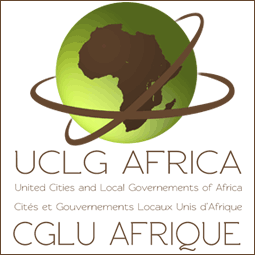Nigeria: Nigeria Needs U.S.$3.1 Billion to Revive Sugar Sector
2012/11/27
According to the Nigerian Sugar Master Plan (NSMP) which was approved by the Federal Executive Council (FEC) at its 37th meeting in September, the entire amount is to be provided by private sector investors. In addition, about N5 billion is expected to be raised annually by public sector agencies through accruals from the sugar levy within the initial five to six-year plan period.
Speaking in Abuja at a forum on the Master Plan aimed at transforming the industry into a world class outfit, the Executive Secretary, National Sugar Development Council (NSDC), Mr. Abdul-lateef Demola Musari, said the implementation of the Plan is expected to end sugar importation within 10 years, during which the country would have attained self-sufficiency.
He said the proposed sugar levy, designed mainly for the development of the sector, would be effective within the initial seven years of the plan. He said: "Once the sufficiency plan goal envisioned in the plan is attained, the approved tariff template will no longer be applicable, as it is designed to terminate with the Master Plan period."
Musari said the country did not need anymore sugar refineries or importation of refined sugar was about 2.2 metric tons of sugar is currently being produced in the country. He said fiscal tariffs would be introduced to discourage importation inclunding restrict entrance of new players.
As well speaking at the occasion, Minister of Trade and Investment, Mr. Olusegun Aganga, expressed displeasure that despite the take over of the sugar sector by private investors, like Dangote, sugar was still being imported into the country.
The minister said it had become worrisome to government that the country which was supposed to be exporting sugar by virtue of its competitive chance was still relying heavily on importation of refined sugar and raw materials. He said government would intensify efforts to develop a vibrant sugar industry, noting that no economy could develop without a strong industrial base.
Meanwhile, while the private sector is expected to provide monetary and technical expertise for the actualisation of the Plan. The government would be required to create a conducive policy environment including fiscal incentives among other things.
The Federal Government considers sugar as the third most significant commodity after rice and wheat in its strategic food policy.
As a result, effective from January 1, 2013, sugar sector investors would benefit from a various incentives already approved by the FEC.
- Comments
- Related Articles
-
Minister of Petroluem resources, Diezani Alison-Madueke
2012/12/31 Minister of Petroluem resources, Diezani Alison-Madueke has said that with the current national consumption rate at 110,000 metric tonnes (MT) per annum of Liquified Petroleum Gas (LPG), Nigeria is ranked part the lowest consumers of LPG in Africa. Speaking at the opening of the LPG Strategic Workshop and Conference in Abuja, the minister said growing the LPG market in Nigeria is a critical component of the country’s Gas Master plan. -
MCC Selects Countries Eligible for New Programs
2012/12/30 At its quarterly conference December 19, the U.S. Millennium Challenge Corporation (MCC) board of directors selected Liberia, Niger, Sierra Leone, Morocco and Tanzania as eligible to develop proposals for new compacts, and Guatemala as eligible for a Threshold Program. "This year's selection decisions are a testament to the 'MCC Effect,' the ability of MCC to provide incentives for nations to adopt policy reforms and strengthen institutions in order to become eligible for an MCC compact," said Daniel W. Yohannes, MCC's chief executive officer. -
Infrastructure evolution set to test tower space
2012/12/29 We have come to expect technology advances that result in consumer electronics equipment getting smaller, additional powerful and in most cases cheaper. This process can be seen in the hands and pockets of most consumers where that smartphone or tablet device houses additional processing power and came at a cheaper price than desktop computers of a decade ago. -
Airtel Nigeria Completes LTE Trial
2012/12/27 Mobile service provider Airtel Nigeria has taken a giant stride in its quest to pioneer innovation and lead a new phase of telecoms revolution in the country as it announces the successful completion of the Long Term Evolution (LTE) trial in Lagos, the commercial nerve centre of Nigeria. LTE, widely accepted as the true 4G, is a standard for wireless communication of high-speed data for mobile phones and data terminals. It is based on advanced network technologies with a central focus of increasing the capacity and speed using a different radio interface together with enhanced core network. -
Efforts to improve critical routes on federal roads
2012/12/27 A whopping N500 billion would be required annually for the next years to fix Nigerian ailing roads and bring them to sync with road infrastructure development in other thriving nations in the world. This was disclosed recently by the Minister of Works, Mr. Mike Onolememen. Onolememen who is an Architect, told the Home of Representatives' Committee on Works that the average annual budget of about N100 billion for road development is grossly inadequate for the country's 35,000 kilometre of Federal roads.
-
- Trending Articles
-
- GABON: Final day of the New York Forum Africa in Libreville 2012-06-25
- TURKEY: Turkey Real Estate 2012-07-24
- AFRICA: Ethiopia, Zambia, Cape Verde: Clarification on the management of television and radio rights
- BRAZIL: Brazilian Gradiente launches IPHON
- MEXICO: Another stab at radical change in telecommunications
- TANZANIA: Tanzania to restrict size of land investors can lease



.gif?1356023993)
.gif2_.gif?1356029657)




